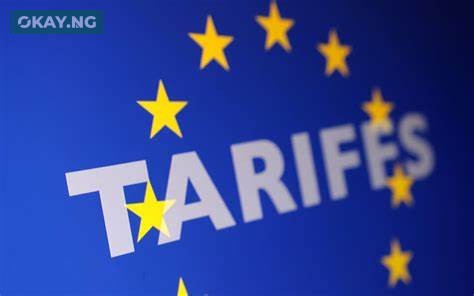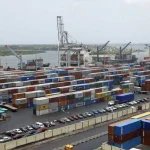The European Commission has proposed imposing 25% counter-tariffs on a range of US imports, escalating the ongoing transatlantic trade dispute, according to a document seen by Reuters. This move, which comes amid persistent disagreements over subsidies and market access, signals a potentially significant shift in the economic relationship between the two major trading blocs.
The proposed tariffs target specific US goods, reflecting a strategic approach to maximize impact while minimizing collateral damage to EU industries. This action is a direct response to what the EU perceives as unfair trade practices and protectionist measures from the United States. “The EU remains committed to open and fair trade, but we must also defend our interests when necessary,” a source familiar with the proposal stated, highlighting the delicate balance the Commission seeks to maintain.
The document reveals that the proposed tariffs are designed to be proportional and compliant with World Trade Organization (WTO) rules, aiming to address the specific grievances related to US trade policies. The selection of targeted goods is crucial, as it reflects the EU’s intent to apply pressure where it will have the most significant effect.
This development arrives at a critical juncture in transatlantic trade relations. In recent years, trade tensions have simmered, punctuated by disputes over steel, aluminum, and agricultural products. The introduction of these counter-tariffs could further strain these relations, potentially leading to a protracted trade conflict.
Read Also: Global Trade War Escalates: Trump’s Tariffs Trigger Market Turmoil and International Backlash
The EU’s move is not without precedent. Historically, both the EU and the US have resorted to tariffs and retaliatory measures to protect their respective markets. However, the current context, marked by global economic uncertainties, makes this escalation particularly significant.
Experts emphasize the importance of dialogue and negotiation to resolve the underlying issues. “The key to avoiding a full-blown trade war lies in finding common ground and addressing the root causes of the dispute,” says Dr. Anya Volkov, an international trade analyst. “Both sides have much to gain from a cooperative approach.”
The coming weeks will be crucial in determining the trajectory of this trade dispute. Stakeholders across industries are closely monitoring the developments, anticipating the potential impact on their operations. The EU’s proposal underscores the complex dynamics of global trade and the challenges of maintaining balanced economic relations in an increasingly interconnected world.
The Commission is expected to formally announce its decision in the coming days, providing further clarity on the specific goods targeted and the timeline for implementation. The world will watch closely to see if diplomacy can prevail or if this will lead to further economic tension.












